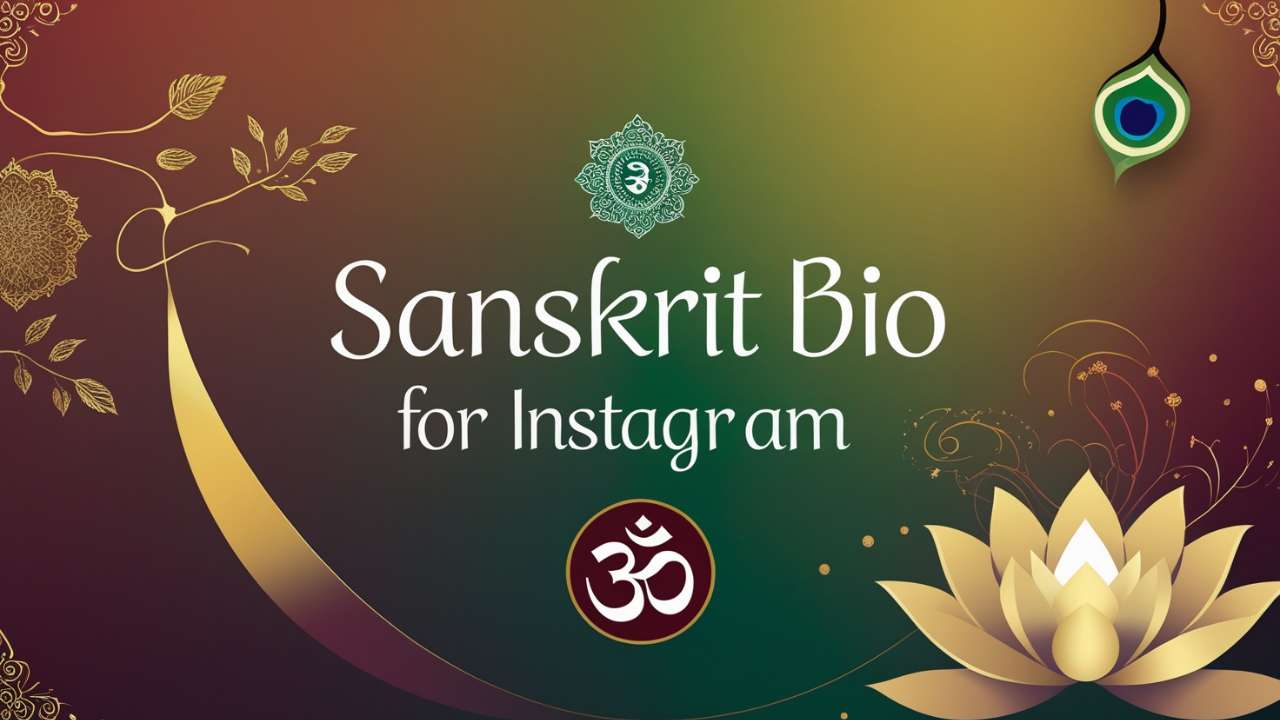A customer support tool is a key application for businesses intending to increase customer satisfaction, ease communication, and reduce response times. The software supports teams in handling questions effectively through ticketing systems, live chat, AI-driven automation, and CRM integration. They are suitable for all types of industries, such as e-commerce, SaaS, IT, and service companies, and they are of great use to customer service agents, marketers, developers, and sales teams.
These platforms on the list have been chosen based on the most relevant factors such as multi-channel capabilities, automation, integration of AI, scalability, ease of use, and price. If your business requires an AI-powered chatbot for real-time response, a built-in CRM system, or a plain, simple live chat feature, these customer support software have the solution to enhance customer interaction and loyalty.
Criteria for Selecting the Best Customer Support Tools
These are the most important decision-making criteria of the top customer care solutions:
- Multi-Channel Support: Support for handling customer interaction via email, live chat, phone, social media, and self-service.
- Automation & AI Features: Chatbots, auto tickets, and AI-driven responses to bring in efficiency.
- Ease of Use: Simple UI and a little learning curve for the customer care representative.
- Scalability: Handling businesses of all sizes, corporates, and small start-ups.
- Integration Options: Easy integration with CRMs, e-commerce websites, and third-party utilities.
- Customization & Workflow Automation: Capability to handle custom process individualization as well as automation of routine tasks as workflows.
- Analytics & Reporting: Reporting of customer interactions, agent performance reports, and resolution time reports.
- Cost-Effectiveness: Inexpensive costs with the potential to possibly be able to justify the cost.
- Security & Compliance: Compliant with standard industry compliance like GDPR, HIPAA, and SOC 2.
- Customer Experience & Support: Unmatched support by the vendors, regular updates, and a strong user community.
List of 15 Best Customer Support Tools
1. Zendesk

Zendesk is a ticketing and customer service solution that is an award-winning product utilized to handle customer interaction through various channels such as email, chat, voice, and social media. Zendesk provides automation, AI-powered chatbots, and self-service portals to automate processes and maximize productivity.
It is integrated with many CRM and productivity tools and is a scalable solution for large, medium, and small businesses. Its robust reporting and analytics capabilities enable teams to monitor performance and improve customer satisfaction. Ideal for companies and expanding companies, Zendesk provides smooth support procedures and better customer interaction.
Key Features:
- Ticket management system with automation.
- AI-powered chatbots and self-service options.
- Multi-channel support (email, chat, social media, phone).
- Customizable reports and analytics.
Pros:
- Scalable for businesses of all sizes.
- Strong integration with third-party apps.
Cons:
- It can be expensive for small businesses.
- Complex setup for beginners.
Pricing:
Starts at $25 per agent/month.
Who Should Use It?
Enterprises and growing businesses need an all-in-one customer service solution.
2. Freshdesk

Freshdesk is one of the customer support tools that provides automation, multi-channel support, and AI-based chatbots. It assists companies in simplifying ticket management, automating business processes, and offering self-service in the form of a knowledge base. Freshdesk supports email, live chat, phone, and social media communications, and thus it is an omnichannel solution for customer support professionals.
Affordable in cost and scalable, it is a great option for small and medium-sized businesses, startups, and enterprises in need of a user-friendly and efficient support tool to enhance customer experience.
Key Features:
- AI-powered ticketing and automation.
- Omnichannel support (chat, email, phone, social).
- Self-service portals and knowledge base.
- Collaborative team inbox.
Pros:
- Affordable pricing with a free plan.
- Easy-to-use interface for small businesses.
Cons:
- Limited advanced reporting in lower tiers.
- Customization options can be limited.
Pricing:
Free plan available; paid plans start at ₹1,199/user/month.
Who Should Use It?
Small to mid-sized businesses looking for an affordable and efficient support tool.
3. Intercom

Intercom is a messaging and engagement customer platform that pairs live chat, chatbots, and automated workflows to optimize customer support. Intercom allows businesses to respond immediately, handle customer questions, and customize interactions via targeted messaging. Intercom plugs into CRMs, helpdesks, and marketing tools and is an ideal fit for sales, support, and customer success teams. Its AI-powered bots and automation assist in decreasing response times and enhancing efficiency, making it a perfect choice for SaaS businesses, e-commerce companies, and technology startups.
Key Features:
- AI-powered chatbots for automated responses.
- Personalized messaging and real-time chat.
- CRM and marketing automation integration.
- Workflow automation for support teams.
Pros:
- Great for customer engagement and retention.
- Powerful automation for scaling support.
Cons:
- Expensive for small businesses.
- Can be complex to set up.
Pricing:
Starts at $74/month.
Who Should Use It?
Businesses that prioritize real-time customer engagement and proactive support.
4. HubSpot Service Hub

HubSpot Service Hub is a customer service tool that is integrated well with HubSpot’s CRM so that companies can monitor customer interactions and tickets easily. It includes live chat, chatbots, ticket automation, and a knowledge base to better serve customers. With analytics and reporting built into it, companies can gauge team performance and customer satisfaction. Its ease of use and automation capabilities make it a compelling option for companies wanting to consolidate their customer service and CRM initiatives in a single solution.
Key Features:
- Ticketing system integrated with HubSpot CRM.
- Live chat and chatbot automation.
- Customer feedback and survey tools.
- Knowledge base creation and self-service options.
Pros:
- Excellent integration with HubSpot’s ecosystem.
- Easy-to-use interface with powerful automation.
Cons:
- Expensive for small businesses.
- Limited advanced features in the free plan.
Pricing:
Free plan available; paid plans start at $890/mo; Includes 3 seats
Who Should Use It?
Companies already using HubSpot for marketing and sales.
5. Zoho Desk

Zoho Desk is amongst the AI-powered customer support tools that seeks to automate customer support operations. It provides multi-channel support through email, live chat, social media, and phone, and automation features to ease ticket closure. Zoho Desk includes AI-powered chatbots, SLA tracking, and robust analytics, making it a perfect fit for businesses that need an intelligent support system. It also seamlessly integrates with Zoho CRM and other third-party apps and is thus ideal for businesses looking for an affordable but powerful helpdesk solution.
Key Features:
- AI assistant for ticket categorization and responses.
- Multi-channel support (email, phone, chat, social media).
- Workflow automation for ticket management.
- Custom dashboards and analytics.
Pros:
- Affordable pricing with strong features.
- Seamless integration with Zoho products.
Cons:
- UI can be confusing for new users.
- Limited third-party integrations.
Pricing:
Free plan available; paid plans start at ₹540/user/month
Who Should Use It?
Small to mid-sized businesses looking for an AI-driven helpdesk solution.
6. LiveChat

LiveChat is live support software that allows companies to talk live with customers. LiveChat allows companies to customize chat widgets, use AI-driven chatbots, and integrate with CRM and e-commerce platforms. LiveChat optimizes customer interaction by allowing teams to handle multiple requests efficiently. LiveChat offers analytics to monitor chat performance and optimize response levels. The software is best suited for internet companies, web shops, and support groups that require a quick and effective live chat system to achieve maximum customer satisfaction.
Key Features:
- Customizable chat widgets with branding options.
- AI-powered chatbots and automated responses.
- Integration with CRM, e-commerce, and helpdesk tools.
- Analytics and customer feedback collection.
Pros:
- Easy to set up and use.
- Works well with multiple third-party apps.
Cons:
- Lacks built-in ticketing system.
- Can be expensive for small businesses.
Pricing:
Starts at $20 per agent/month.
Who Should Use It?
Businesses focused on real-time customer engagement and instant support.
7. Salesforce Service Cloud

Salesforce Service Cloud is an enterprise-grade customer support solution that is scalable. It provides AI-based automation, ticketing, case management, and omnichannel support to allow businesses to deliver personalized support. With extensive integration with Salesforce CRM, it allows teams to monitor interactions and automate workflows. Its AI-based chatbots and self-service features lower support workload without compromising on service quality. Service Cloud is ideal for big organizations and companies that require an advanced, data-driven support platform to optimize customer experiences.
Key Features:
- AI-powered customer service automation.
- Omnichannel support (email, chat, phone, social).
- Self-service portals and knowledge bases.
- Advanced analytics and reporting.
Pros:
- Seamlessly integrates with Salesforce CRM.
- Highly customizable for enterprise needs.
Cons:
- Expensive for small businesses.
- Requires training for full utilization.
Pricing:
Starts at $25 per user/month.
Who Should Use It?
Enterprises and large teams needing an advanced, scalable support solution.
8. Tidio

Tidio is a live chat and chatbot software powered by AI that enables businesses to offer instant support. Tidio enables businesses to interact with customers via automated chatbots, live chat, and integration of email support. Tidio’s automated responses minimize response times and improve customer satisfaction. Tidio is suitable for small businesses and web stores that need an inexpensive yet powerful support solution that maximizes customer communication and conversions through automated responses and live chat sessions.
Key Features:
- AI chatbots with automated workflows.
- Live chat and email integration.
- Customizable widget for websites.
- Multi-channel messaging from a single dashboard.
Pros:
- Affordable and beginner-friendly.
- Chatbots help automate repetitive tasks.
Cons:
- Limited analytics in lower-tier plans.
- Lacks advanced ticketing features.
Pricing:
Free plan available; paid plans start at $29 per month.
Who Should Use It?
Small businesses and startups looking for a budget-friendly chatbot and live chat tool.
9. Gorgias

Gorgias is one of the customer support tools. It supports integration with Shopify, Magento, and WooCommerce, enabling companies to handle support tickets, live chat, and social media support in one interface. Gorgias has AI-driven automation, macros, and intent detection capabilities to automate responses. Its automation capabilities reduce the amount of repetitive work, and it is a great solution for online stores and e-commerce companies that want to offer quick and efficient support and enhance customer retention and sales.
Key Features:
- AI-driven responses and automation.
- Integration with Shopify, Magento, and WooCommerce.
- Multi-channel support (email, chat, social media).
- Centralized support dashboard.
Pros:
- Ideal for e-commerce businesses.
- Streamlines customer inquiries and order tracking.
Cons:
- Not suitable for non-e-commerce businesses.
- Can be expensive for small stores.
Pricing:
Starts at $60 per month (basic plan).
Who Should Use It?
E-commerce businesses that need a specialized customer support system.
10. Olark

Olark is a powerful yet simple live chat software that can be utilized by small businesses to augment customer interactions. Olark enables real-time communication, automatic chat, and seamless teamwork and communication among teams. Olark enables chat transcripts, analytics, and CRM integration to boost the support processes. Olark is simple to install, cost-effective, and highly adaptable, and thus it is an ideal tool for small businesses and start-ups. With active chat invitation and automation functionality, Olark helps businesses converse with customers better, drive higher conversions, and provide individualized support without being a hassle.
Key Features:
- Customizable live chat widgets.
- Automated messaging and chat transcripts.
- CRM and helpdesk integrations.
- Real-time visitor tracking and analytics.
Pros:
- Simple setup and user-friendly interface.
- Affordable for small businesses.
Cons:
- Lacks built-in ticketing system.
- Limited features compared to competitors.
Pricing:
Starts at $29 per agent/month.
Who Should Use It?
Small businesses looking for a straightforward live chat tool.
11. Drift

Drift is a chatbot and AI-based messaging platform that provides a conversational interaction experience to customers. Drift plugs into CRM and marketing automation systems to empower businesses to automate support and sales processes. Drift bots apply AI to qualify leads, auto-response to FAQs, and enable more customer engagement. Its conversation marketing approach best fits B2B businesses, SaaS companies, and sales teams. With automation, live chat, and lead generation, Drift allows businesses to accelerate response time, increase conversions, and enhance customer satisfaction.
Key Features:
- AI-driven chatbots for lead generation.
- Real-time live chat and automated messaging.
- CRM and sales automation integration.
- Personalized conversation flows.
Pros:
- Excellent for sales and lead conversion.
- Strong integration with marketing and CRM tools.
Cons:
- Expensive for small businesses.
- Requires some technical knowledge to set up.
Pricing:
Custom pricing (contact sales).
Who Should Use It?
Sales teams and marketers focused on lead generation.
12. Kayako

Kayako is a customer service application that combines social media, live chat, and ticketing systems for effective customer support. It brings together automation, knowledge bases, and shared inboxes for effective collaboration among support agents. Kayako provides intelligent support experiences by tracking customer interactions across multiple channels. It is best suited for mid-sized organizations and teams looking for an economical and instant helpdesk solution. Automated responses coupled with an easy-to-use interface enhance workflow, reduce response time, and help organizations deliver consistent, high-quality support with ease.
Key Features:
- Multi-channel support (email, chat, social, phone).
- Self-service knowledge base.
- Collaboration tools for teams.
- Automated workflows and smart ticketing.
Pros:
- Strong focus on team collaboration.
- Intuitive interface for managing support queries.
Cons:
- Limited integrations with third-party apps.
- Expensive compared to similar tools.
Pricing:
Book a call for pricing.
Who Should Use It?
Mid-sized businesses looking for an all-in-one customer support platform.
13. HappyFox

HappyFox is an AI-based helpdesk software with omnichannel customer support across email, chat, phone, and social media. It features smart ticket automation, workflow customization, and a self-service knowledge base to automate the support workload and improve response efficiency. HappyFox is integrated with various business applications; hence, it is highly scalable to large teams. With AI-based chatbots and intelligent automation tools, businesses can increase productivity without sacrificing customer service. It is a great option for customer support groups that require an extremely intuitive, feature-rich solution that unifies support operations on multiple channels.
Key Features:
- AI chatbots and automation.
- Multi-channel support (email, chat, social).
- Self-service knowledge base.
- Workflow automation for ticketing.
Pros:
- Strong AI capabilities for automation.
- Omnichannel support improves customer engagement.
Cons:
- No free plan available.
- Can be costly for small teams.
Pricing:
Starts at $29 per agent/month.
Who Should Use It?
Businesses needing AI-driven customer support and automation.
14. Crisp

Crisp is a customer messaging platform for businesses that combines live chat, chatbots, and shared inboxes to streamline business communication. Real-time customer interactions are supported through chat automation, proactive messages, and CRMs as well as e-commerce platform integrations. Crisp comes with automated workflows, hence businesses can easily handle support questions. It is particularly popular among startups, SaaS companies, as well as small businesses that want a clean but powerful communication tool. With its AI-powered chatbot, multi-channel messaging, and customer engagement tracking, Crisp allows business owners to provide an engaging and responsive customer experience.
Key Features:
- Live chat and chatbot automation.
- Shared inbox for team collaboration.
- Multi-channel messaging (email, chat, social).
- Knowledge base and customer feedback tools.
Pros:
- Affordable pricing for startups.
- Great for small teams needing a shared inbox.
Cons:
- Lacks advanced automation features.
- Limited reporting tools.
Pricing:
Free plan available; paid plans start at $95 per month.
Who Should Use It?
Startups and small businesses needing a cost-effective messaging solution.
15. Help Scout

Help Scout is a customer support software that comes along with shared inbox, automation, and knowledge base management to simplify support. Help Scout allows teams to collaborate effortlessly while retaining the personalized customer touch. Help Scout features sophisticated reporting and analytics, which allow businesses to optimize their support. It is appropriate for small businesses, startups, and distributed teams who need a simple-to-use yet powerful customer support solution. With its email support tool, self-service, and frictionless integrations, Help Scout helps businesses deliver excellent customer support with reduced response times and internal workflows.
Key Features:
- Shared inbox for team collaboration.
- AI-powered automation for ticketing.
- Self-service knowledge base.
- Live chat and email support.
Pros:
- Clean and user-friendly interface.
- Affordable pricing for small teams.
Cons:
- Lacks advanced analytics.
- Limited integrations with third-party tools.
Pricing:
Starts at $22 per user/month.
Who Should Use It?
Small businesses and startups looking for an easy-to-use customer support tool.
Comparison Between Best Customer Support Tools
Here’s a comparison table of the best customer support tools, covering features, pricing, use cases, and websites:
| Tool | Key Features | Pricing | Best For | Website |
| Zendesk | Ticketing, automation, live chat, AI-powered support | Starts at $25/user/month | Enterprises, multi-channel customer support | zendesk.com |
| Freshdesk | Omnichannel support, automation, AI chatbot | Free plan; paid starts at ₹1,199/user/month | Small to mid-sized businesses | freshdesk.com |
| Intercom | AI chatbots, customer messaging, automation | Custom pricing | SaaS businesses, sales, and support teams | intercom.com |
| HubSpot Service Hub | CRM integration, ticket automation, live chat | Free plan; paid starts at $890/moIncludes 3 seats | Businesses using HubSpot CRM | hubspot.com/service |
| Zoho Desk | AI-powered ticketing, automation, analytics | Free plan; paid starts at ₹540/user/month | Startups, customer service teams | zoho.com/desk |
| LiveChat | Real-time chat, chatbot, analytics | Starts at $20/user/month | E-commerce, customer engagement | livechat.com |
| Salesforce Service Cloud | AI-powered customer service, automation, analytics | Custom pricing | Large enterprises, Salesforce users | salesforce.com/service-cloud |
| Tidio | AI chatbot, live chat, email automation | Free plan; paid starts at $29/month | Small businesses, e-commerce | tidio.com |
| Gorgias | E-commerce-focused customer support automation | Starts at $60/month | Shopify and e-commerce brands | gorgias.com |
| Olark | Live chat, automation, analytics | Starts at $29/user/month | Small businesses, lead generation | olark.com |
| Drift | AI chatbot, sales automation, conversational marketing | Custom pricing | B2B businesses, SaaS companies | drift.com |
| Kayako | Ticketing, live chat, shared inbox | Book a call | Small to mid-sized businesses | kayako.com |
| HappyFox | Omnichannel support, AI-driven ticketing, automation | Starts at $29/user/month | IT teams, enterprises needing automation | happyfox.com |
| Crisp | Multi-channel messaging, chatbots, shared inbox | Free plan; paid starts at $95/month | Startups, SaaS, small businesses | crisp.chat |
| Help Scout | Shared inbox, knowledge base, automation | Starts at $22/user/month | Small businesses, remote teams | helpscout.com |
Conclusion
Your choice of customer support tools depends on business needs as well as organizational scale and communication approach toward customers. The combination of Zendesk and Salesforce Service Cloud meets the requirements of big organizations seeking robust automation integration with CRM systems. Small and medium-sized businesses obtain affordable solutions with lots of features from both Freshdesk and Zoho Desk platforms.
Real-time messaging alongside AI-based support functions are superior features found in Intercom and Drift. Small enterprises benefit best from the combination of Help Scout and Olark due to their simple approach and operational efficiency. The customer service platform Gorgias enables seamless connection to the Shopify e-commerce system. Using the correct tool both enhances customer contentment and streamlines workflows because it decreases response durations to help businesses succeed through time.
FAQs
1. What are the must-haves in a customer support tool?
Multi-channel support (email, chat, phone, social media), automation, ticketing systems, self-service functionality, analytics, and CRM and business app integration are what the best customer support tools will deliver.
2. What are the best customer support tools for small businesses?
Help Scout, Olark, and Zoho Desk are fantastic for small business owners as they are economical, user-friendly, and include basic customer support functionality.
3. Do customer support tools offer any free alternatives?
Yes, several tools such as Freshdesk (free plan), Zoho Desk (free plan), and Tidio (basic version) offer a free version with limited functionality that is ideal for startups and small teams.
4. What is the best customer support tool that is AI-powered?
Intercom, Drift, and Tidio make use of AI-driven chatbots and automation to tailor customer interactions for maximum engagement, accelerate response rates, and reduce effort.
5. How do customer support tools integrate with CRM systems?
All these utilities like Zendesk, Salesforce Service Cloud, and HubSpot Service Hub have CRM integrations, and they enable organizations to track interactions with customers, personalize support, and manage customer relationships efficiently.



